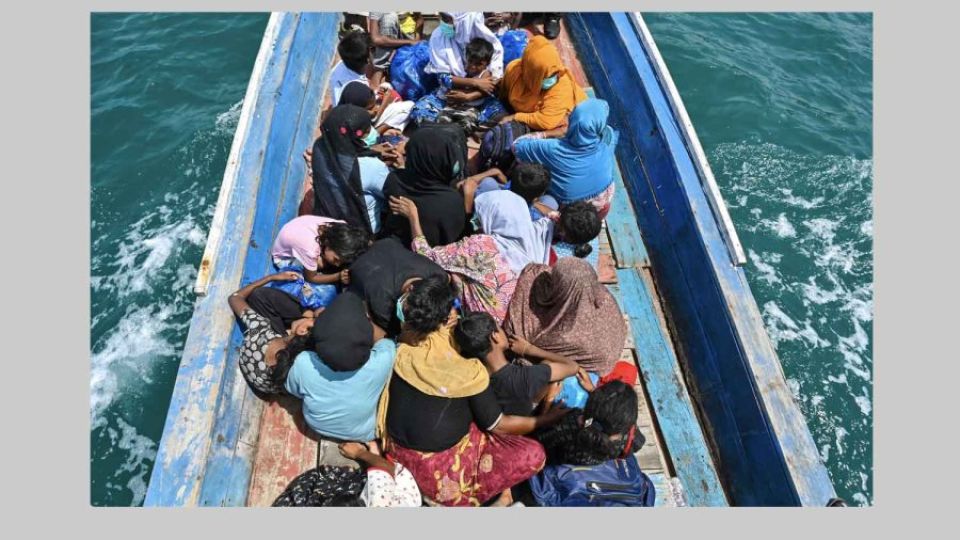December 17, 2024
JAKARTA – The Foreign Ministry said on Monday that it was preparing for this week’s Bangkok meeting slated to discuss the Myanmar crisis, adding that ASEAN’s commitment to an inclusive dialogue remained unchanged despite the absence of any Naypyidaw representatives at the formal talks.
The meeting, initiated by current ASEAN chair Laos, will feature at least seven of the group’s members and three other external countries interested in resolving the Myanmar crisis, particularly through the implementation of the Five-Point Consensus (5PC) for peace, the ministry’s spokesperson Rolliansyah “Roy” Soemirat said.
“This meeting is crucial for Indonesia to underline the urgency of the Myanmar crisis, and the implementation of the 5PC through a Myanmar-led, Myanmar-owned solution where every stakeholder can cooperate and deliver,” Roy told a press briefing on Monday.
“The agenda so far is not so rigid, every representative present will have their time to share their perspectives,” he added.
The crisis in Myanmar, first sparked in 2021 when a military coup deposed Naypyidaw’s democratically elected government, has in recent years tested ASEAN’s capability to solve problems.
ASEAN has since initiated hundreds of peace dialogues with various stakeholders in Myanmar, all while insisting that it will neither directly intervene nor expel Naypyidaw from the group. Its 5PC initiative, however, has struggled to take hold in Myanmar, with its calls for an immediate cessation of violence, dialogue among all parties, engagement of a special envoy and humanitarian assistance largely ignored by the military junta.
Against this backdrop, ASEAN formed late last year a troika of the current chair, previous chair and upcoming chair to advance a peaceful resolution in Myanmar. It was later expanded to include “troika plus” countries: ASEAN members interested in participating in the resolution of the conflict despite not being part of the troika arrangement.
Members of the troika plus that have confirmed their attendance at this week’s meeting are host Thailand itself, as well as Singapore, Cambodia and the Philippines, according to Roy.
Officials from China, India and Bangladesh, nonmembers of either troika plus or ASEAN but sharing borders with Myanmar, will also be attending, Reuters reported.
“The presence of these nonmember countries indicates that there is a lot of special attention and goodwill being shown for Myanmar, a sign that the interest in resolving the crisis is still very much there,” Roy said.
It remains unclear who will be representing Jakarta at the meeting, with Foreign Minister Sugiono slated to accompany President Prabowo Subianto to Egypt on Thursday to attend the Developing Eight (D-8) Summit.
The Bangkok meeting will feature two sessions: a ministerial-level consultation between current troika members, Indonesia, Laos and Malaysia; and an extended consultation with other countries.
Not truly absent?
While Roy revealed that there will be no Myanmar representatives present during the Bangkok talks, he said it was “not impossible” for the group to host a nonformal meeting that would invite Myanmar.
Malaysian Prime Minister Anwar Ibrahim, who will lead ASEAN next year, said in a press briefing with his visiting Thai counterpart on Monday, that ASEAN was “taking measures through dialogues informally at different levels to ensure Myanmar participates, and bring [it] back to the fore of ASEAN”.
Hopes are high that ASEAN can make progress on the Myanmar crisis, especially with next chair Malaysia’s stronger diplomatic prowess compared with Laos, and the unrelenting international pressure for the crisis to be resolved.
The Thai foreign ministry on Monday confirmed that there would be an informal meeting in Bangkok featuring an envoy from Naypyidaw to discuss border security and transnational crimes.
The political crisis in Myanmar has triggered a boom in illegal drug production there and an “unprecedented” number of cases of drugs trafficked into Southeast Asian neighbors, according to a 2023 United Nations report.
The ruling junta has also increased military violence against the Rohingya minority, driving them away mostly to Bangladesh, and around the Southeast Asia region.
Despite being a non-signatory to the UN refugee convention and historically not being a popular destination for refugees, Indonesia has seen an increase in the number of Rohingya refugees arriving on the coasts of the northwestern part of the archipelago, frequently causing social tensions with the local population.
“Indonesia is particularly interested in resolving the Rohingya refugee crisis, and we think that this issue should have its own designated place in any frameworks being used for Myanmar,” Roy said.


